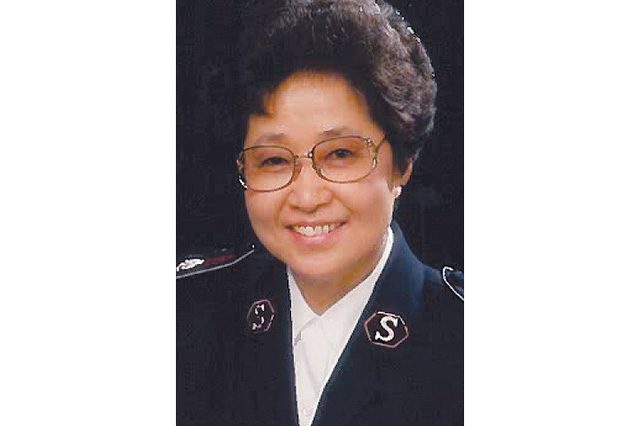
I have just returned from Southern California, where I was a speaker for Officers’ Councils. The subject I had been asked to address was everyday ethics for Salvation Army officers. Obviously the subject is close to my heart, and so it was a real privilege to get the invitation. But it’s such a big topic, how do you organize it into a manageable number of sessions?
I decided to draw on the wisdom of William F. May, who says the first question is what is the mission of the church and therefore its ministers (or in our case, the mission of the Army and its officers). “[And] no enduring answer to the question of mission emerges without appeal to the essential functions or actions of Christ himself…Any serious reflection on ministry must reckon with the three great images for the work of Christ: priest, prophet, and king.”
1. Biblical prophets declared God’s righteous expectations for the ways people would behave towards each other. They did so with conviction. They did so with eloquence. And they did so with relevance to their context. When Amos saw poor people suffering the double injustice of being poor because others stole their grain and unable to get their day in court because they didn’t have the money to bribe the judge, he had to speak up. When Jesus saw his fellow Jews defining “neighbor” narrowly so they didn’t have to help Samaritans or goyim, he had to speak up.
We need such moral leadership today, too. This is why the instruction is given to officers to preach with the Bible in one hand and the newspaper in the other. It’s not to keep the sermons interesting. It’s that people in the world and the church still need ministers who are able to teach us how God’s eternal moral law fits our contemporary situation. Part of the everyday ethical challenge for officers is to equip themselves with the mind and the courage for this task.
2. We no longer have priests in the sense that ancient Israel did, but the church still expects something of the priestly service from its ministers when it charges them to be pastoral counselors. In Hebrews 4 and 5, we are told that it was the responsibility of priests to know people intimately–in all their sin and weakness and ignorance–and to know God intimately too–in all his mercy and grace. Jesus’ knowledge of people was incomparable; and as God his knowledge of the divine character was similarly incomparable. Which means that no officer can do what Jesus “the great high priest” does. But they still can and do every day provide pastoral counsel to individuals who seek them out for help in times of trouble.
Competence and discretion are two of the ethical requirements of officers in their capacity as pastoral counselors. Karen Lebacqz says, “It is precisely this matter of making value choices that is integral to the practice of ministry. The minister is considered a moral authority whose pronouncements carry moral weight.” When a woman seeks out her officer because she has not been faithful and her marriage is falling apart, or when a man seeks out his officer because he has been stealing at work, the officer needs to be competent to deal gently (as Hebrews 5:2 says) with those who are going astray. And the officer needs discretion to know what and how much ought to be kept confidential, knowing that too much publicity or too much secrecy could cause unwarranted harm.
3. When the church affirms that Jesus is King of Kings and Lord of Lords, it is declaring Jesus’ authority, his legitimate claim to power. All other authority, including the authority of officers, is delegated authority, and ultimately accountable to Jesus. Faithfulness to Jesus in the exercise of their power is therefore an everyday ethical challenge for Officers.
The Bible speaks of two major temptations that come to authority-figures. The first is negligence, the second is power-lust. Human groups need organization and organizers: if the leaders are negligent, the people are like sheep without a shepherd (Ezekiel 34:5; Matthew 9:36). On the other hand, human groups need leaders whose goal is the strength of the group, not the grandeur of the leaders (Ezekiel 34:2-4; 1 Peter 5:2-3). This is why 1 Timothy says church leadership is a “noble task,” but also says it is one to be entrusted only to those with tested integrity (1 Timothy 3).
What was true in Timothy’s time is true today. We need officers whose character equips them to deal ethically with issues of power, neither shrinking from its use nor using it to others’ detriment.












